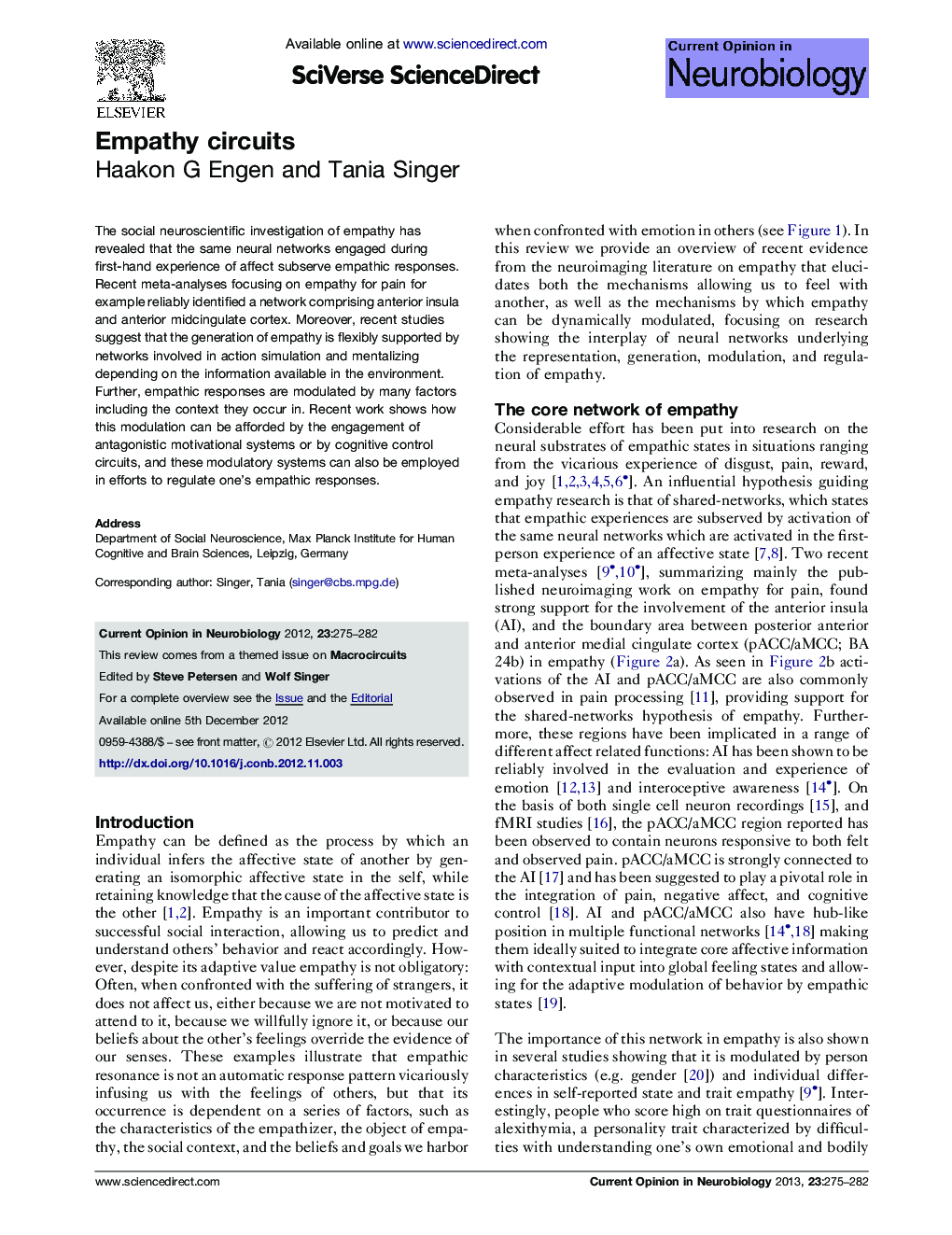| Article ID | Journal | Published Year | Pages | File Type |
|---|---|---|---|---|
| 6266848 | Current Opinion in Neurobiology | 2013 | 8 Pages |
The social neuroscientific investigation of empathy has revealed that the same neural networks engaged during first-hand experience of affect subserve empathic responses. Recent meta-analyses focusing on empathy for pain for example reliably identified a network comprising anterior insula and anterior midcingulate cortex. Moreover, recent studies suggest that the generation of empathy is flexibly supported by networks involved in action simulation and mentalizing depending on the information available in the environment. Further, empathic responses are modulated by many factors including the context they occur in. Recent work shows how this modulation can be afforded by the engagement of antagonistic motivational systems or by cognitive control circuits, and these modulatory systems can also be employed in efforts to regulate one's empathic responses.
⺠Meta-analytic evidence points toward dACC/aMCC as a core empathy network. ⺠This network is modulated by trait, state, and contextual factors. ⺠Recent findings indicate that empathy can also be intentionally regulated.
